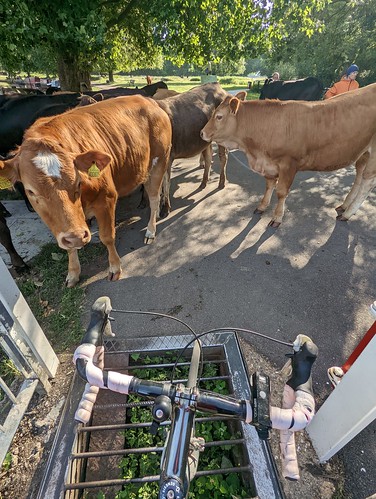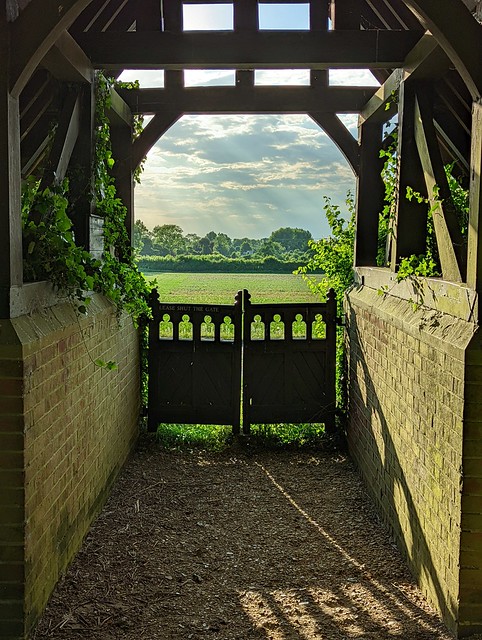 I've said this before1, alas in the middle of posts that no-one read, so I'm going to say it again to make it more explicit: I dislike rights-based language.
I've said this before1, alas in the middle of posts that no-one read, so I'm going to say it again to make it more explicit: I dislike rights-based language.2022-06-29
I dislike rights-based language
 I've said this before1, alas in the middle of posts that no-one read, so I'm going to say it again to make it more explicit: I dislike rights-based language.
I've said this before1, alas in the middle of posts that no-one read, so I'm going to say it again to make it more explicit: I dislike rights-based language.2022-06-22
Church and State
 SCOTUS strikes again: Court strikes down Maine’s ban on using public funds at religious schools. And, as far as I can tell, they were correct. Read the judgement here.
SCOTUS strikes again: Court strikes down Maine’s ban on using public funds at religious schools. And, as far as I can tell, they were correct. Read the judgement here.The point at issue is the first amendment clause Congress shall make no law respecting an establishment of religion, or prohibiting the free exercise thereof.... But what does it mean? For the case in point, I don't much care about the "free exercise" portion, the interesting bit is "make no law respecting". The natural interpretation of this would be that no (federal, but by incorporation state) law can say anything about religion. And so banning use of public funds on religion is as prohibited as diverting funds specifically to religion, or any particular religion.
However, there's a "doctrine" of "separation of church and state", which can be reasonably read to say that the state shouldn't fund the church. The dissent (p24) leans heavily on that doctrine: On the other hand, the Establishment Clause “commands a separation of church and state.” But, just as with Separation of powers, which isn't in the constitution, neither is separation of church and state. It is only a handy guide to interpretation; it can't override the actual words.
However, the decision itself it largely based on the FE bit, contra my wise advice, on the grounds it protects indirect coercion or penalties on the free exercise of religion, not just outright prohibitions. This is plausible, but to me rather wifflier. So I guess I'm obliged to conclude that they got the right answer, but not for all the right reasons.
Update
I was looking for someone being really really sad about this, and it looks like Noah Smith is a good example. I think he's talking about this case, and also the Gunz stuff. I'm doubtful his The Court is kind of going crazy right now, with a bunch of activist decisions that most people hate is true; but it is interesting that his solution is court packing; see-also Me on USAnian politics. Since I don't say so explicitly there, I'll say it here: I think packing is a bad idea, at least in part because I don't think the Supremes are crazy.
The New Yorker isn't happy either, but is predicatably long on complaint and short on ideas; it has none beyond the vague "It is long overdue to end the Court’s undemocratic role in U.S. society" which is not actionable.
Another example of having no idea what to do is Op-Ed: How to move forward after the destruction of Roe vs. Wade. Don't be fooled by the title. Yes, I've switched from C+S to RvW without even noticing... because in the matter of dislike-but-don't-engage, things seem analoguous. See-also A [sic] eulogy to Roe.
Uupdate: moah gunz
Gunz, gunz, gunz, gunz, everybody loves gunz. Anyway: New York State Rifle & Pistol Association v. Bruen: A minor impact on gun laws but a potentially momentous shift in constitutional method is reasonably thoughtful. But notice towards the end, where he discusses the balance in the amount of regulation required. Is 16 hours of classroom instruction really needed? His answer is that some was valuable, about 2-3 hours was useful, but 16 was excessive. So I think this looks like over-regulation, and I think it is vulnerable, and in my roll-back-the-state mood, I'd welcome that. But I'd hope that, pre-emptively, DC would reconsider the amount it forces people to take.
Refs
* America’s Supreme Court requires Maine to include religious schools in a tuition programme: America’s Supreme Court is eroding the separation of church and state - Economist
* The Armalite and the ballot box; Gunz: constitutionalism and majoritarianism
* Reason: Alito's Leaked Abortion Opinion Misunderstands Unenumerated Rights: The Supreme Court justice is wrong when he says abortion rights aren't deeply rooted in American history.
* Basement Fertility and Immigration Charities, Please Forgive Black Markets and Blame Government Instead - Bryan Caplan
* Who Sees Which Political Falsehoods as More Acceptable and Why: A New Look at In-Group Loyalty and Trustworthiness by Jeff Galak and Clayton R. Critcher via Twatter.
* Two Libertarians Debate Abortion
* Alito's Junk History About Lochner
* Voters in Kansas decide to keep abortion legal in the state, rejecting an amendment. By about 60-40, which the BBC describes as "overwhelmingly".
* 2023/06: Dobbs was a fundamentally lawless decision, says someone who has confused anger with thought: an all too common response. People are bad at separating "I didn't like this decision" with "this decision cannot be justified". In case I haven't said it elsewhere: the Dobbs decision, whilst you may not like it, was a reasonable interpretation of the constitution.
* 2023/11: The Effects of the Dobbs Decision on Fertility.
* 2024/03: Fewer states allow abortions, yet American women are having more: Economist.
* 2022/05: Recent considerations in Roe vs Wade.
2022-06-20
Mayflies
 Another year over and deeper in debt... this is Caius M2, though it was hard to distinguish them from M11. The separation at the catch is nice, something that this apparently respectable video doesn't like. It was a good year; lots of exciting action; some excellent and some achingly poor rowing; Caius and Newnham retained their headships.
Another year over and deeper in debt... this is Caius M2, though it was hard to distinguish them from M11. The separation at the catch is nice, something that this apparently respectable video doesn't like. It was a good year; lots of exciting action; some excellent and some achingly poor rowing; Caius and Newnham retained their headships.Refs
Notes
 |
 |
 |
2022-06-09
Governments have largely failed to seize their chance to rearrange their energy supplies away from fossil fuels?
 In the face of momentous events people who really ought to know better are saying silly things like "Shocking: So far, governments have largely failed to seize their chance to rearrange their energy supplies away from fossil fuels. Instead, we are witnessing a global “gold rush” for new fossil gas production". This comes from stuff like The world is going through a major energy crisis as a result of Russia’s invasion of Ukraine. So far, governments have largely failed to seize their chance to rearrange their energy supplies away from fossil fuels.
In the face of momentous events people who really ought to know better are saying silly things like "Shocking: So far, governments have largely failed to seize their chance to rearrange their energy supplies away from fossil fuels. Instead, we are witnessing a global “gold rush” for new fossil gas production". This comes from stuff like The world is going through a major energy crisis as a result of Russia’s invasion of Ukraine. So far, governments have largely failed to seize their chance to rearrange their energy supplies away from fossil fuels. Update: other dumb stuff
Refs
2022-06-07
Why Paternalists Must Endorse Epistocracy?
 Via Bryan Caplan but more specifically https://philpapers.org/rec/BREWPM. Generally I hate stuff with wanky philosophic words in it, but in this case Wiktionary tells me it means Rule by citizens with political knowledge, or a proposed political system which concentrates political power in citizens according to their knowledge which I suppose is fair enough. And this is of interest since whenever a discussion on democracy continues long enough someone - quite likely me - will bemoan the general stupidity of the general populace and ponder some means to restrict the francise to non-clowns; which usually means people like them or me; see-also Starship Troopers. Anyway, they say:
Via Bryan Caplan but more specifically https://philpapers.org/rec/BREWPM. Generally I hate stuff with wanky philosophic words in it, but in this case Wiktionary tells me it means Rule by citizens with political knowledge, or a proposed political system which concentrates political power in citizens according to their knowledge which I suppose is fair enough. And this is of interest since whenever a discussion on democracy continues long enough someone - quite likely me - will bemoan the general stupidity of the general populace and ponder some means to restrict the francise to non-clowns; which usually means people like them or me; see-also Starship Troopers. Anyway, they say: ...we are “predictably irrational” in the pursuit of our interests. Paternalists from both the social sciences and philosophy use these findings to defend interfering with people's consumption choices for their own good. We should tax soda, ban cigarettes, and mandate retirement savings to make people healthier and wealthier than they’d be on their own. Our thesis is that the standard arguments offered in support of restricting people’s consumption choices for their own good also imply support for “epistocratic” restrictions on people’s voting choices for their own good...
Which is plausible. In the end, they come up with most of the correct arguement against: Last, there is a practical objection to paternalistic regulation of the vote: state agents might abuse their new powers. They end up dismissing this, but they are wrong to: corruption or incompetence in consumption choice regulation is undesireable, but limited, and fixable within the political process. Corruption of who-can-vote is, potentially, not fixable.
Refs
* Education - Our World in Data
2022-06-03
Yet moah climate suing
 A Peruvian farmer takes on Germany’s largest electricity firm, says El Econo. Peruvians doing wacky things is not necessarily news, but since the Economist is interested, perhaps I am. Previous stuff refers, weakly. From El E: Saúl Luciano Lliuya... teamed up with Germanwatch, a German green NGO, to sue RWE, Germany’s largest power company and Europe’s second-largest emitter, for belching nearly 7bn tonnes of greenhouse gases between 1854 and 2010. This, he says, has put his house at risk of a devastating flood. Mr Luciano Lliuya’s claim asks RWE to pay 0.47% of the costs of implementing it. That calculation comes from a study published in 2014 by Richard "Dick" Heede... which found that the activities of 90 large industrial emitters collectively accounted for 63% of the carbon dioxide and methane emitted between 1854 and 2010. This share is further broken down to the company level, laying the responsibility for 0.47% of historical emissions at RWE’s door.
A Peruvian farmer takes on Germany’s largest electricity firm, says El Econo. Peruvians doing wacky things is not necessarily news, but since the Economist is interested, perhaps I am. Previous stuff refers, weakly. From El E: Saúl Luciano Lliuya... teamed up with Germanwatch, a German green NGO, to sue RWE, Germany’s largest power company and Europe’s second-largest emitter, for belching nearly 7bn tonnes of greenhouse gases between 1854 and 2010. This, he says, has put his house at risk of a devastating flood. Mr Luciano Lliuya’s claim asks RWE to pay 0.47% of the costs of implementing it. That calculation comes from a study published in 2014 by Richard "Dick" Heede... which found that the activities of 90 large industrial emitters collectively accounted for 63% of the carbon dioxide and methane emitted between 1854 and 2010. This share is further broken down to the company level, laying the responsibility for 0.47% of historical emissions at RWE’s door.But that 0.47% is wrong, of course: RWE didn't emit 0.47%. More, why sue RWE? Because the Krauts might be a soft touch. El E adds Court documents suggest that the German judges may consider that climate impacts were foreseeable from 1958, when the amount of CO2 in the atmosphere began to be recorded each day which is really very stupid indeed and will only fly in a heavily politicised court, if even there. Also note that they aren't even suing for damages.
El E adds And in any case that project is well within the local government’s budget. The fact that it has sat around for six years has more to do with bureaucracy and corruption. Local beliefs complicate matters. When sophisticated flood-warning systems were installed in two neighbouring villages, threatened by different lakes, the locals destroyed them.